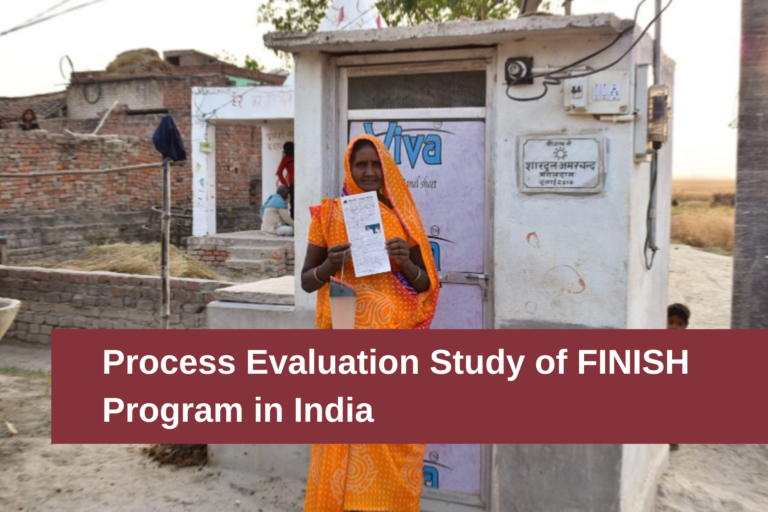June 1, 2022
|
Publications
|
WASTE


Several low-income and developing countries face major disease burdens associated with poor sanitation
including diarrhea, soil-transmitted worm infections, trachoma, lymphatic filariasis, etc. This hurts the health care cost and the overall economic growth. Even though cost-effective preventive behaviors and
investment are known, low uptake of these technologies poses a challenge for global health. In 2011, around 620 million people, or 50% of the population in India defecated in open, acting as a huge barrier in achieving the health outcomes envisaged for the country.
Prior to the launch of India’s national sanitation campaign, Swacch Bharat Mission (SBM), FINISH initiated one of the biggest sanitation programs in India in 2009-10. The program worked on a multi-stakeholder engagement approach with an end-to-end effort on the sanitation value chain, from demand generation to behavioral change to the facilitation of funds by Micro Finance Institutions (MFIs). The focus was on awareness generation at individual and community level to further behavioral change for adopting sanitary practices and generating demand for sanitation systems. Concurrently, there was also a need to mobilize funds for the construction of toilets and other sanitation facilities through government incentives and sanitation loans.
For this purpose, FINISH engaged with government departments, financial institutions, NGOs and co-operatives. After the beneficiaries were funded, FINISH linked them with material & systems supply chain partners to improve affordability. Furthermore, through capacity building and livelihood generation activities for masons, it supported to uplift their socio-economic status. Ensuring proper training of field staff and animators resulted in achieving sustainable usage of sanitation facilities by beneficiaries and effective waste management methods. FINISH partnered with several grassroots organizations, MFIs, NGOs, SHG federations and cooperatives in their program years, where partnerships have grown from 10 in 2011 to 60 partners in 2016-17. Furthermore, FINISH explored collaboration with corporates through their CSR partnerships as well.
In India, FINISH has been able to surpass its set goal of improved sanitation systems for 5,00,000 households. It has been able to aid the construction of over 600,000 sanitation systems by its first closure in 2016, followed by a total of more than 1 million toilets (1,143,026 sanitation systems) by the end of 2020.